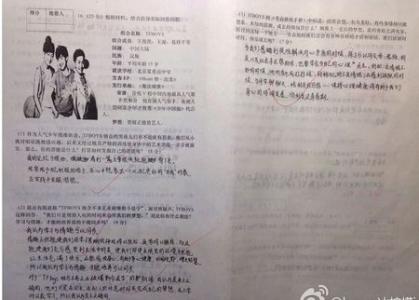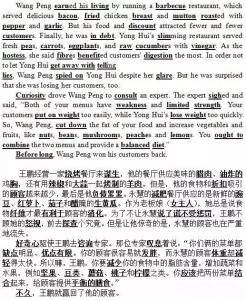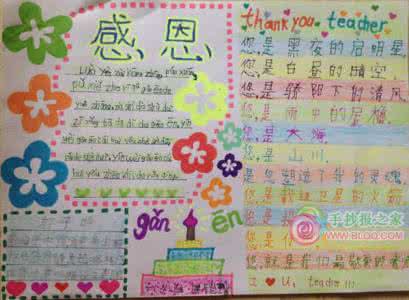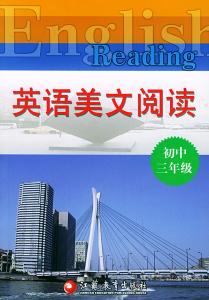能合理有效地开展情景会话教学,英语教学效果也会明显突出,起到了事半功倍的作用。小编精心收集了经典英语对话短文,供大家欣赏学习!
经典英语对话短文篇1
H: Hi Fang. Every time I see you, you've got your head stuck in a book!
H:你好,芳。每次看到你,你都在埋头读书。
W:I'm reading a poetry book by Xu Zhimo. It is so great.
W:我正在读一本徐志摩的诗集,他的话真不错。
H: I know him! Besides poetry, he also wrote some prose.
H:我知道他!除了诗,他也写爱华网。
W:True. I like his style very much, you know, he was the pioneer in Chinese modem poetry movement.
W:对。我非常喜欢他的风格。你知道吗,他是中国现代诗歌运动的先驱。
H: Does it mean that they write in the vernacular style?
H:就是说他们用白话创作对吧?
W:Yes. I can't believe that you know so much about Chinese literature! Only a few people outside China know him.
W:对。真不敢相信,你对中国文学有如此多的了解I其实国外知道他的人很少。
H: It's a Chinese friend who introduced his works to me. I only wish I know Chinese better,thus I can understand more about his poetries.
H:是一位中国朋友介绍他的诗作给我的。真希望自己的汉语水平再高一些,这样我 就能读懂更多他的诗歌了。
W: Actually, his story was wide-spreading in China, especially his love stories with three womenZhang Youyi, Lin Huiyin and Lu Xiaoman.
W:实际上在中国,他的故事广为流传,特别是他和三位女性的爱情故事——张幼仪、 林徽因和陆小曼。
H: So that is part of the reason why he can write such great poems!
H:他能写出这么棒的话,肯定也和这个有关!
W: Definitely. His poems like “By chance” were loved by millions of people.
W:肯定的。很多人都很喜欢他的诗歌,比如说《偶然》。
H: I think the most famous one is “Saying Good-bye to Cambridge Again”? The Cambridge even installed a white marble stone to commemorate him with verses of this poem carved upon it.
H:我想他的诗中最著名的应该是那首《再别康桥》吧?为了纪念他,剑桥大学竖起 了一座白色石碑,上面刻的就是《再别康桥》中的名句。
W: True. He must have spent a wonderful time in Cambridge which enables him to produce beautiful verses like that.
W:对啊。他肯定在剑桥度过了一段十分美好的时光,要不然他也写不出这么好的诗 句。
H: I'm wondering since there are so many bridges over the Cam, which one is the bridge he mentioned in the poem?
H:我在想,既然康河上有那么多的桥,他诗中提到的究竟是哪一座呢?
W: I have no idea. It seems that there are many disputes over that. Some said that it is the Byron Bridge; some said it is the Mathematical Bridge and some said it must be the Bridge of Sighs.
W:我也不知道。对于这一点,好像有很多争议。有些人说是拜伦桥,有些人说是数 学桥,还有些人说肯定是叹息桥。
H: This poem is loaded with love and romance.
H:这首诗充溢着爱和浪漫。
W: Yes, the rhythm and words are so delicate. Some said that he wrote this for Lin Huiyin.
W:对啊。这首诗辞藻华丽,朗朗上口。有人说,这是特别为林徽因作的。
H: One of the three women Xu has ever involved himself in?
H:是那三个女人中的一位吗?
W: Yes. By chance Zhimo met Lin Huiyin in a London International Union and fell in love with her. Both Zhimo and Huiyin were interested in literature and they often met to discuss about literature after they first met.
W:对。徐志摩在伦敦国际联盟遇到了林徽因,之后就爱上了她。他们两人都对文学 感兴趣,之后就常常相约一起谈论文学。
H: Miss Lin must be charming girl.
H:这位林小姐一定是位有魅力的女子。
W; That's for sure. She was beautiful, elegant and smart and later became a famous architect as well as a writer in China. Zhixno was so in love with Huiyin that he request to divorce with Zhang Youyi.
W:当然啦,她美丽优雅又冰雪聪明,之后成为了中国著名的建筑设计师。徐志摩十 分爱慕林徽因,甚至向张幼仪提出了离婚。
H: He has already got married then?
H:他那个时候已经结婚了吗?
W: He was married when he was 18 years old. The marriage was arranged by his parents. In old China, children had no say in that.
W:他18岁的时候就结婚了,是由父母安排的。在旧社会,子女们通常无权作主婚姻 大事。
H: He must be unhappy then.
H:他那时候肯定不幸福。
W: Definitely. The two then divorced in Berlin in March 1922. At the same time, Huiyin left for China with her father. When Zhimo knew that, he went back to China immediately.
W:肯定的。1922年,他们在柏林离了婚。同时,林徽因和她父亲回到了中国。徐 志摩一听说这个,马上赶了回去。
H: What happened next? Have they met each other then?
H:之后呢?他们见面了吗?
W: Yes. But by the time he found her, she had become the wife of Liang Sicheng, the son of Zhimo's teacher Liang Qichao. Zhimo felt desperate and experienced the hardest period of time in his life.
W:见了。但是当他见到林徽因的时候,她 已经成为了梁思成的妻子。梁思成是徐 志摩的老师梁启超的儿子。徐志摩非常的绝望,好长一段时间都十分沮丧。
H: How about the third woman in his life?
H:那另外一个女人是怎么回事?
W: She was called Lu Xiaoman. Originally, she was the wife of Xu’s friend, who was very popular in the Beijing upper class society. I can tell you the details next time.
W:她叫陆小曼,开始是徐志摩一位朋友的妻子,是当时北京的社交名媛。我以后再 详细跟你讲吧。
H: OK. Xu died in a plane crash when he was young, is that true?
H:好的。徐志摩死于一次飞机事故,那时他还很年轻,对吗?
W: Yes, at age 34. He never stopped pursuing truth, beauty and freedom until he died. His death was a great loss for Chinese literature. If he did not die so early, he might have done much more for Chinese literature as well as the world literature.
W:是的,他那时只有34岁。他的一生从未停止过对真理、美好和自由的追求。他 的死对中国文学来说是一个巨大的损失。如果不是英年早逝,他肯定能为中国文 学乃至世界文学的发展作出更大的贡献。
经典英语对话短文篇2
C: Wow, visiting the picture-postcard Trinity College brings me enormous enjoyment.
C:哇,游览风景如画的三_学院带给我极大的享受。
J: And speaking of Trinity College, it's the most aristocratic of the Cambridge colleges and it has generally been the academic institution of choice of the Royal Family.
J:说到三一学院,它是剑桥大学众学院中最高贵的,英国皇室成员通常在此就读。
C: Trinity College has more members than any other colleges in Cambridge, but it has the lowest state school intake of any college. Trinity has a strong academic tradition, with members having won 32 Nobel Prizes.
C:三一学院的人数比剑桥大学中的其他学院都要多,但是它的录取率却是众学院中 最低的。三一学院有悠久的学术传统,该学院的成员获得过32个诺贝尔奖。
J: And I heard that there are many famous alumni in the history of Trinity College.
J:而且我还听说在三一学院的历史上有很多著名的校友。
C: Yes, you're quite right. Jawaharlal Nehru, the first Prime Minister of India, is a great example.
C:是的,你说得很对。印度首任总理贾瓦哈拉尔尼赫鲁就是一个很好的例子。
J: Nehru's father wanted Nehru to get a proper English education and to qualify him for the Indian Civil Services or I.C.S.. So Nehru was sent to Harrow, the elite Public school in England.
J:尼赫鲁的父亲想让他接受正统的英国教育,让他有资格参加印度公务员考试 (I.C.S.)。所以尼赫鲁被送进了苺格兰顶尖公学——哈罗公学学习。
C: But the young Nehru did not enjoy his schooling at Harrow. He found the school syllabus stifling and the residency conditions unbearable. All students of the school were forced to condition themselves to bath and wash in cold water,
C:但是年轻的尼赫鲁并不喜欢在哈罗公学上学。他发觉学校的教学大纲枯燥乏味, 住宿条件难以忍受。学校的所有学生被迫用冷水洗澡。
J: After completing school, Nehru took the University of Cambridge entrance examinations in 1907. The same year, he got admission into the University.
J:完成哈罗公学的学业后,尼赫鲁在1907车参加了剑桥大学入学考试,同年,他 顺利考人剑桥大学。
C: Jawaharlal Nehru studied natural sciences at Cambridge University. His chosen subjects were physics, chemistry and botany.
C:贾瓦哈拉尔尼赫鲁在剑桥大学学习自然科学。他选的科目是物理、化学和生物。
J: He studied the three natural science subjects with only one aim, to pass the Indian Civil Services examination. Nevertheless, Jawaharlal Nehru enjoyed his stay at Cambridge.
J:他学这三门自然科学课程只有一个目的——通过印度公务员考试。不过尼赫鲁还 是喜欢待在剑桥大学的。
C: Yes. The liberal atmosphere of the University encouraged him to do a host of non- academic activities. Jawaharlal Nehru passed the final Cambridge degree examinations successfully, where he stood second.
C:是的,剑桥大学的自由氛围鼓励他进行了很多的非学术活动。尼赫鲁成功通过了 剑桥大学毕业等级考试,排名第二。
J: He then studied law at the Inner Temple in London. He returned to India in 1912 and practised law for some years.
J:然后尼赫鲁在伦敦的内殿法学院学习法律。1912年他回到印度,作了几年律师。
C: In 1919, Nehru joined the Indian National Congress which was fighting for greater autonomy from the British. He was heavily influenced by the organisation's leader Mohandas Gandhi.
C: 1919年,尼赫鲁加入了印度国大党,该党当时正向英国争取更大的自治权。尼赫 鲁受国大党领导莫罕达斯甘地的影响很大。
J: Gandhi set a great example of how to struggle for independence for Nehru, And by the end of World War Two, Nehru was recognised as Gandhi’s successor.

J:甘地为尼赫鲁树立了_个如何争取独立的好榜样。二战结束时,尼赫鲁被认为是 甘地的接班人。
C: But Nehru had suffered from a lot of disasters during the 1920s and 1930s. He was repeatedly imprisoned by the British for civil disobedience.
C:但是在20世纪20年代到30年代之间,尼赫鲁遭受了很多苦难。他因奉行不含 —作主义而多次被英国当局关进监狱。
J : He played a central role in the negotiations over Indian independence. He opposed the Muslim League's insistence on the division of India on the basis of religion.
J:尼赫鲁在印度独立的谈判中扮演了主要角色。他反对穆斯、联盟的提议,不赞同 以宗教为基础对印度进行分冶。
C: On 15 August 1947,Nehru became the first prime minister of independent India. He held the post until his death in 1964.
C: 1947年8月15日,尼赫鲁成为独立后的印度的首任总理,他一直担任总理直到 1964年去世。
J: By the way, Nehru's daughter Indira Gandhi was the prime minister of the Republic of India for fifteen years until her assassination in 1984.
J:对了,尼赫鲁的女儿英吉拉甘地也当了 15年的印度共和国总理,直到她1984 年被刺杀。
C: She was India's first, and to date only, female prime minister.
C:她是印度第一位也是至今唯一位女性总理。
经典英语对话短文篇3
J: What are you writing, Tina?
j:你在写什么,汤姆?
T: I'm writing a dairy.
T:我在写日记。
J: Oh, keeping a dairy is a good habit, but I'm not used to it.
J:噢,记日记是一个好习惯,但我就设有这个习惯。
T: Influenced by Samuel Pepys, I started to keep a dairy last year.
T:受塞缪尔佩皮斯的影响,我从去年开始写日记。
J: Samuel Pepys? The guy who recorded great events, such as the Great Plague of London, the Second Anglo-Dutch War and the Great Fire of London in his diary?
J:塞缪尔佩皮斯?就是那个在日记中记录了很多大事件,如伦敦大瘟疫、第二次 英荷战争和伦敦大火的人吗?
T: Yes, it's him. The Diary of Samuel Pepys is the collected works of his diaries. But The Diary of Samuel Pepys was collected by someone else, unlike other diarists of his time; Pepys had no aspirations for publication.
T:是的,就是他。《塞缪尔佩皮斯日记》是他的日记集。和那时的日记作者不同的 是,《塞缪尔_-佩皮斯日记> 是由其他人收集整理的,佩皮斯本人并不打箄出版。
J : And this freed him up to paint a frank portrait of life in London at the time of the Restoration.
J:这使得佩皮斯有精力来描绘_幅真实的王政复辟时期的伦敦生活画卷。
T: Yes, you're right. Throughout the work, which spans from 1660 to 1669,Pepys offered his firsthand sources on the major events during the Restoration, including his own role in helping to bring Charles II back from exile to become king.
T:是的,你说得很对。在1660年到1669年的日记中,佩皮斯提供了王政复辟时期 重大事件的第_手资料.包括他是如何帮助流亡中的查理二世重登国王宝座的。
J: His diaries recorded his aid in both the Great Plague of 1665 and the Great Fire of 1666, too.
J:佩皮斯的日记还记录了他在1665年大瘟疫和1666车大火中提供的援助。
T: The coverage gives The Diary of Samuel Pepys a historic distinction as well as a literary one.
T:这些记载让(塞缪尔佩皮斯日记》既有历史意义又有文学价值。
J: In some degree, Pepys's dairy is not so much a record of events as a re-creation of them, Pepys's achievement rests on his close observation and total recall of detail. It is the small touches that achieve the effect.
J:从某种程度上来说,佩皮斯的日记与其说是事件的记录,不如说是事件的再创造。 佩皮斯的成就有赖于细致的观察和完整的细节回忆。只是细节上的小小润色就会 取得不俗的效果。
T: And what contribute to his success is the freshness and flexibility of the language. Pepys writes quickly in shorthand and for himself alone. The words, often pile on top of each other without much respect for formal grammar, exactly reflect the impressions of the moment.
T:清新灵活的语言是他成功的另一个原因。佩皮斯 用速记法写日记,写得很快,而且这种速记法只有 他自己才能识别。佩皮斯的文字不注重形式语法,经常是单词的首字母堆积在一起,准确地反映了他 对于某个时刻的印象。
J: Instead of writing a considered narrative, Pepys shows us hundreds of scenes from life — civil servants in committee, Members of parliament in debate, concerts of music, friends on a river outing,
J:佩皮斯并不打算写一篇经过深思熟虑的记叙文,他向我们展示的是生活中数以百计的场景——委员 会中工作的公务员、辩论中的议员、音乐会和在河 岸边郊游的明友等。
T: The diary's contents are characterized also by its geographical setting. It is a London diary, with only occasional glimpses of the countryside.
T:他的日记还以地理环境为特征。这是一本伦敦日记,只是偶尔涉及到乡村。
J: As luck would have it, Pepys wrote in the decade when London suffered two of its great disasters-the Plague of 1665 and the Great Fire of the following year.
J:碰巧的是,在佩皮斯写日记的那10年里,伦敦遭受了两次大灾难——1665年大 瘟疫和1666年大火。
T: He wrote the dairy in a cryptic code, which was his own variation on an existing form of shorthand.
T:佩皮斯是用密码写日记的,是他对一种现有速记法的变形。
J; Fearing that he was going blind from writing, Pepys stopped recording entries in his diary in 1669 and had his entire diary bound for his personal library, which he left to Magdalene College, Cambridge University his alma mater.
J:由于害怕写作会致盲,佩皮斯于1669年停止了记日记,并将所有日记都收藏在 他的私人图书馆里。佩皮斯后来把私人图书馆捐赠绘他的母校——剑桥大学麦格 达伦学院。
 爱华网
爱华网



